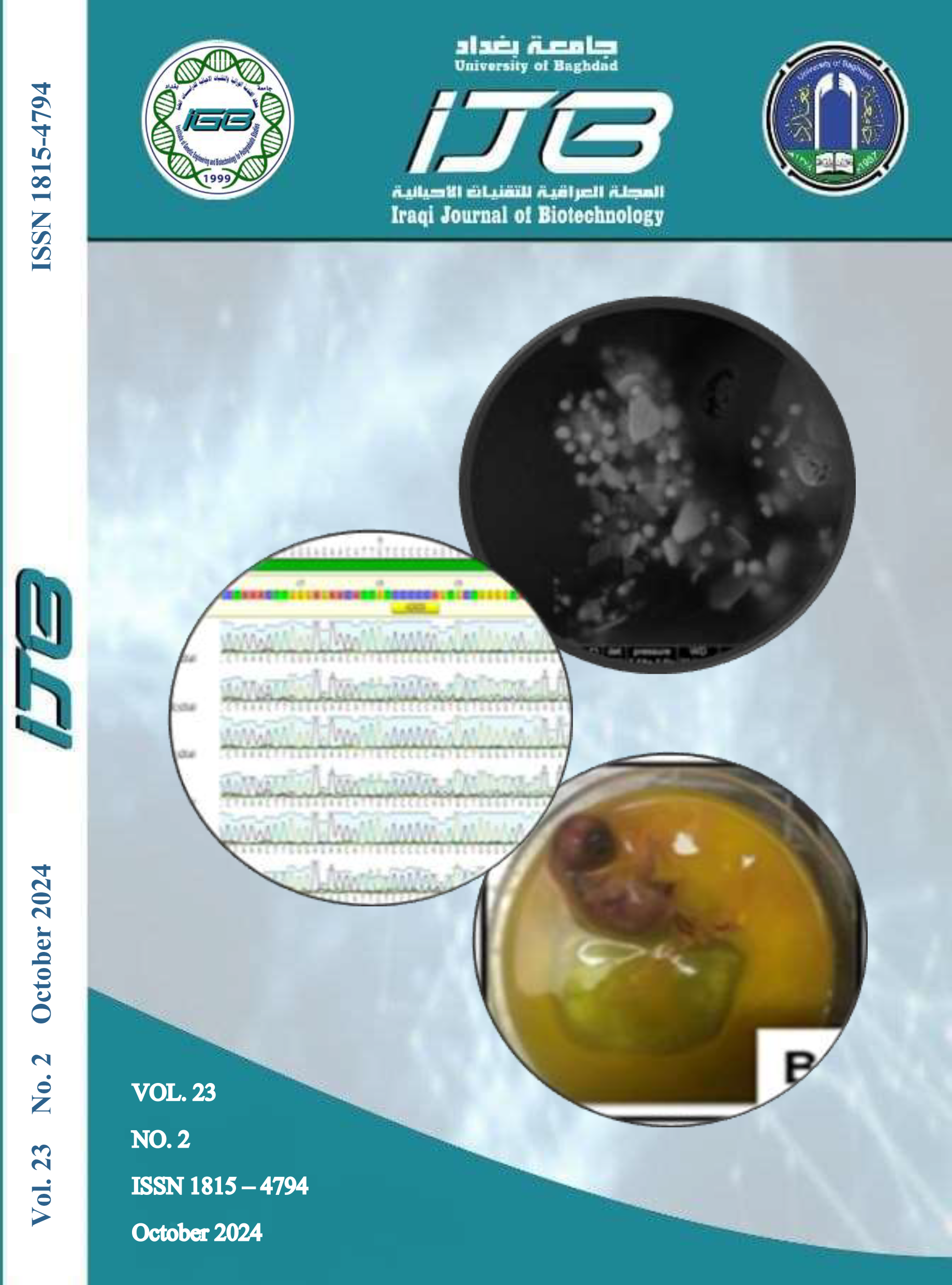Effects of Thiopurine Methyle Transferase (TPMT) Gene Polymorphism on Serum TPMT Levels in Iraqi Patients Diagnosed with Ulcerative Colitis
Abstract
Ulcerative colitis is a chronic inflammatory bowel disease. Thiopurine methyltransferase (TPMT) is an enzyme that metabolizes a class of drugs called thiopurines. The aim of this study was to examine the impact of a polymorphism (rs2842934) in TPMT gene on TPMT level. Genotyping for TPMT gene (rs2842934) polymorphism was determined by the tetra-primer amplification refractory mutation system-polymerase chain reaction (TARMS-PCR). Serum TPMT level was estimated by ELIZA Technique .The TPMT gene (rs2842934) polymorphism demonstrated a significant association with UC risk. The highest prevalence of UC was seen among patients who had heterozygous GA genotype [Odd Ratio (OR): 17.51; 95% Confidence Interval (CI): (6.109-50.199); P-value <0.001]. The homozygous genotype (GG) showed the lowest risk with only (8%) in UC patients compared to the controls (72.5%) [OR: (0.03); 95%CI. (0.011-0.100); P-value < 0.001]. The highest mean TPMT enzyme level was ±196 pg/mL in UC patients who were homozygous for A allele compared to ±0.50 pg/mL in controls; P-value <0.001. Conclusions: The TPMT gene (rs2842934) polymorphism showed that the G allele was beneficial for protection from UC. In contrast, the “A” allele of rs6721961 significantly increases susceptibility to UC.


